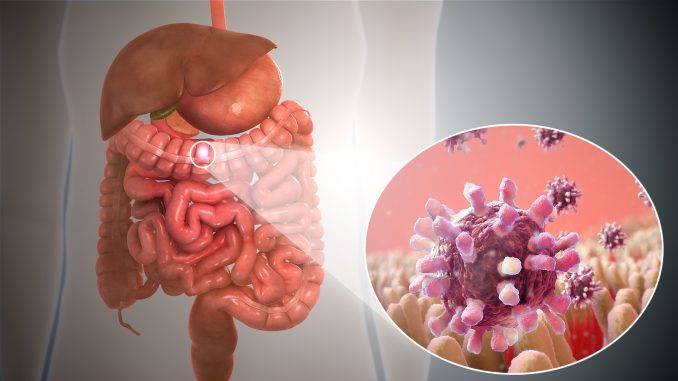
If you notice that you have diarrhea and stomach cramps, you may have gastroenteritis. The condition is sometimes called “stomach flu”, but it is not the same as influenza. Viral gastroenteritis can affect both adults and children.
Gastroenteritis
Also known as “stomach flu,” viral gastroenteritis is an inflammation of the stomach and intestines caused by a virus. In other words, it is an inflammation of the gastrointestinal tract.
Causes of gastroenteritis
Gastroenteritis is caused by viral, bacterial or parasitic infections. Vital gastroenteritis is contagious and is responsible for many complications.
The most common ways we can contact this virus are:
- through contaminated food, especially seafood
- via contaminated water
- contact with an infected person
- not washing our hands regularly
There are several viruses that can cause gastroenteritis, including:
Noroviruses – both children and adults are affected by noroviruses;
Rotaviruses – Worldwide, this is the most common cause of viral gastroenteritis in children who get infected when they put contaminated objects in their mouths.
Risk factors for gastroenteritis
Any person can get gastroenteritis at some point. However, people who have a higher risk of illness are:
- children get in contact with many other kids, from the school or kindergarten
- students sharing the same dormitory
- any person with a weakened immune system – for example, HIV / AIDS patients, chemotherapy or people with other illnesses
- people who travel a lot.
- people who have their immune system weakened by certain illnesses or medications
Gastroenteritis Symptoms
The main symptoms of gastroenteritis are:
- diarrhea
- cramps and abdominal pain
- vomiting or nausea
- muscle pain
- light fever.
Some patients also bituce other symptoms, such as loss of appetite, upset stomach, headaches and discomfort in the limbs. Symptoms usually occur one day after infection with the virus that causes gastroenteritis.
Depending on the cause, symptoms of viral gastroenteritis may occur within 1-3 days of contacting the virus. The symptoms persist for only a day or two, but in some situations they may persist for even 10 days.
Other symptoms may be:
- weight loss (may be a sign of dehydration)
- abundant sweating
- moist and cold skin
- joint stiffness and muscle pain
- fecal incontinence.
What are the most effective treatment options?
The body can fight the disease on its own within a few days. The most important thing to keep in mind when treating gastroenteritis is to replace the fluids and electrolytes that the body loses due to diarrhea and vomiting.
The diet should contain foods rich in electrolytes and complex carbohydrates such as lean meat (fish or chicken) and whole grains, because this types of food can replace the lost nutrients. You can also buy oral rehydration solutions.
Doctors generally do not recommend diarrhea medications for gastroenteritis because they tend to prolong the infection, especially for children.
What else can you do if you have gastroenteritis?
If you exeprience diarrhea and vomiting, it is best to stay home until you feel better. It is not necessary to go to a doctor unless your symptoms worsen or there is a risk of a more serious problem.



Leave a Reply